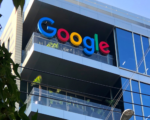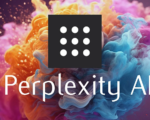In a recent development, a class action lawsuit has been lodged this week in the U.S. District Court in D.C., targeting Google and its parent entity, Alphabet, for purportedly engaging in anticompetitive practices that contravene U.S. antitrust regulations, including the Sherman Act, among others. Filed by the Helena World Chronicle, an Arkansas-based publisher, the lawsuit contends that Google’s actions result in the unjust extraction of news publishers’ content, audience, and advertising revenue via anticompetitive mechanisms. The suit specifically highlights the adverse impact of cutting-edge AI technologies like Google’s Search Generative Experience (SGE) and Bard AI chatbot, underscoring their exacerbation of the challenges faced by news publishers in the current landscape.
In the complaint, Helena World Chronicle, which owns and publishes two weekly newspapers in Arkansas, argues that Google is “starving the free press” by sharing publishers’ content on Google, losing them “billions of dollars.”
In addition to new AI technologies, the suit points to Google’s older question-and-answer technologies, like the “Knowledge Graph” launched in May 2012, as part of the problem.
“When a user searches for information on a topic, Google displays a ‘Knowledge Panel’ to the right of the search results. This panel contains a summary of content drawn from the Knowledge Graph database,” the complaint states. “Google compiled this massive database by extracting information from Publishers’ websites — what Google calls ‘materials shared across the web’ —and from ‘open source and licensed databases,’” it says.
By 2020, the Knowledge Graph had grown to 500 billion facts about 5 billion entities. But much of the “collective intelligence” that Google tapped into was content “misappropriated from Publishers,” the complaint alleges.
Other Google technologies, like “Featured Snippets” where Google algorithmically extracts answers from webpages, were also cited as shifting traffic away from publishers’ websites.
More importantly, perhaps, is the suit’s tackling of how AI will impact publishers’ businesses. The problem was recently detailed in a report on Thursday by The Wall Street Journal, which led with a shocking statistic. When online magazine The Atlantic modeled what would happen if Google integrated AI into search, it found that 75% of the time the AI would answer the user’s query without requiring a click-through to its website, losing it traffic. This could have a major impact on publishers’ traffic going forward, as Google today drives nearly 40% of their traffic, according to data from Similarweb.

Amid mounting concerns, some publishers are proactively addressing the impending challenges. Notably, Axel Springer recently forged a partnership with OpenAI, inking a deal to license its news for AI model training. However, an overarching apprehension persists among publishers, as they anticipate a potential loss ranging between 20% to 40% of their website traffic upon the full implementation of Google’s AI products, as per a report by The Wall Street Journal.
The lawsuit echoes these apprehensions, contending that Google’s recent strides in AI-powered search aim to dissuade end-users from visiting the websites of member publishers operating within the digital news and publishing sector.
The lawsuit outlines the repercussions of Google’s Search Generative Experience (SGE), alleging that while SGE presents a conversational mode for web searchers, it effectively confines users within Google’s enclosed environment, claiming it “plagiarizes” content from publishers’ websites. Moreover, publishers face constraints in blocking SGE, given its utilization of the same web crawler as Google’s general search service, GoogleBot.
Additionally, the suit scrutinizes Google’s Bard AI, citing its training on datasets encompassing “news, magazine, and digital publications.” It references a 2023 report by the News Media Alliance and a Washington Post article on AI training data to substantiate its claims. Moreover, concerns extend to fluctuating AdSense rates and alleged evidence spoliation by Google, a matter previously raised in the Epic Games lawsuit against Google.
The lawsuit seeks damages and an injunction, compelling Google to obtain consent from publishers for using their website data to train both its proprietary AI products and those of competitors. It also requests provisions allowing publishers opting out of SGE to appear in Google search results, among other stipulations.
This legal action in the U.S. coincides with Google’s recent agreement with the Canadian government, where the tech giant will allocate $73.5 million annually to Canadian media outlets for content usage. Negotiations with Meta, however, remain unresolved following Meta’s decision to block news in Canada in response to pressures related to compensating for content under the new Canadian law.
The lawsuit emerges alongside the U.S. Justice Department’s litigation against Google for monopolizing digital ad technologies. Referencing the 2020 Justice Department’s civil antitrust suit over search and search advertising, the current lawsuit underscores Google’s alleged anticompetitive conduct that detrimentally impacts competition, consumers, labor, and a free democratic press.
A statement from the law firm handling the case, Hausfeld, underscores the invocation of the Sherman Act and Clayton Act, seeking class-wide monetary and injunctive relief to foster competition within the digital news and reference publishing sector, safeguarding a free marketplace of ideas amid the era of artificial intelligence.
Google has been approached for comment, yet to respond.
















